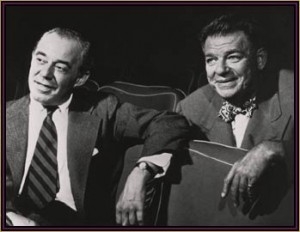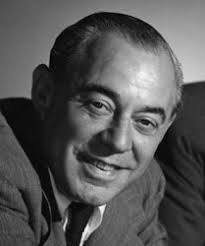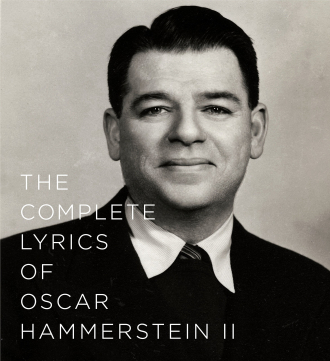Oscar Hammerstein II and Richard Rodgers
A photo of Oscar Hammerstein II (right) with Richard Rodgers.
Date & Place:
Not specified or unknown.


 Amanda S. Stevenson
Amanda S. Stevenson 



